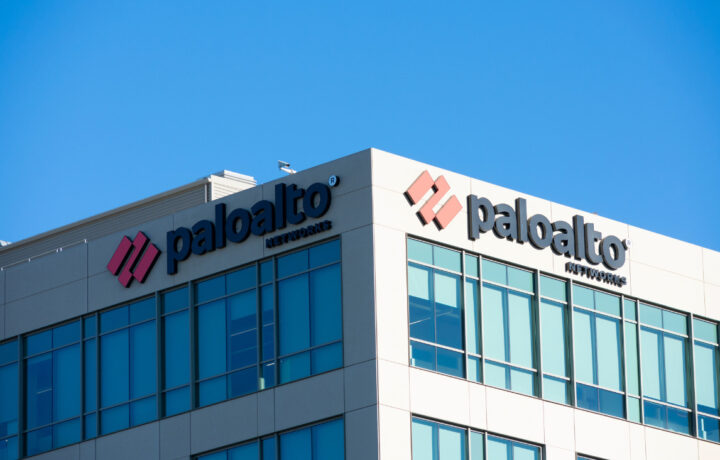With IT security company Palo Alto (PANW) poised to benefit significantly from a recent, major hacking incident and its shares changing hands at a relatively low valuation, PANW stock appears to be quite attractive at this point.
Also importantly, a recent acquisition by the firm may very well help it exploit the AI boom more fully, while one possible acquisition will produce many huge cross-selling opportunities, and may increase the extent to which it can protect its customers from AI-powered attacks. Finally, another potential acquisition could help intensify the benefits that it obtains from the recent security breach.
In light of all of these considerations, growth investors looking for a blue-chip technology stock should consider PANW.
The Hacking Incident and PANW’s Relatively Low Valuation
National Nuclear Security Administration, the U.S. agency that develops and maintains nuclear weapons, was among the many entities hacked recently due to a vulnerability in Microsoft’s (MSFT) SharePoint software. Although no “sensitive or classified information” was reportedly obtained by the hackers, the incident is likely to lead the federal government to meaningfully enhance its IT security efforts. Because PANW is one of the largest IT security vendors in America and has a significant foothold in government agencies, the firm is likely to benefit from these initiatives by Washington.
Moreover, since businesses were also attacked and many companies were likely successfully hacked as well, a high number of firms will, like the federal government, look to enhance their IT security efforts going forward. As one of the biggest providers of IT security to the U.S. private sector, Palo Alto is likely to get a boost from this trend.
On the valuation front, PANW is changing hands at a forward price-earnings ratio of 54. That’s well below the levels of a significant number of other elite names in the cybersecurity space. For example, CyberArk’s (CYBR) forward P/E is 98, while CrowdStrike’s (CRWD) is 131, and Zscaler’s (ZS) P/E ratio is 76.3.
Acquisitions Look Poised to Lift PANW
Palo Alto has been in talks about buying one of its smaller peers in the IT security sector, CyberArk (CYBR), for over $20 billion – going through just this morning. (In a previous column on CYBR, I wrote that it ” is likely to be acquired at some point at a large premium to its current share price.”)
Despite the price tag I believe that it would be quite profitable for PANW over the longer term. Given CYBR’s impressive client list, which has included gigantic companies such as “Mastercard (NYSE:MA), Aflac (NYSE:AFL) and Exxon Mobil (NYSE:XOM),” Palo Alto can greatly boost its top and bottom lines by marketing its offerings to CyberArk’s customers. And of course, Palo Alto will also be able to generate large amounts of additional revenue by selling CYBR’s products to its customers.
Indeed, CyberArk’s “expertise in privileged access management (PAM) and secrets management” could very well make its offerings appealing to many of PANW’s current customers. That’s because these capabilities reportedly are well-suited for combating “AI-driven threats.” Of course, the latter threats are becoming much more prevalent. Finally, the combination of CYBR’s identity management systems and PANW’s advanced AI can enable companies and government agencies to make it harder for their sensitive data to be accessed from remote locations or at unusual times.
In my previous article on PANW, I reported that it is poised to benefit from the need to secure the growing amounts of data being moved to the cloud in order to facilitate AI.
After being announced on July 22, the company’s acquisition of Protect AI is likely to further lift PANW’s ability to benefit from the AI boom. According to Palo Alto, Protect AI is “an innovative leader in securing Artificial Intelligence (AI) applications and models.” Eric Moore, CTO, Digital Modernization Sector at systems integrator Leidos (LDOS) added that “With Protect AI now part of Palo Alto Networks, organizations can rely on a single vendor to address end-to-end AI risk, including model vulnerability scanning, automated red teaming, and runtime protection.” Red teaming refers to the process of testing AI systems by running simulated attacks that helps highlight vulnerabilities.
Meanwhile, there have been multiple reports in recent weeks that PANW is looking to acquire Israel-based IT security firm SentinelOne (S). Since the latter firm appears to do extensive work for the Pentagon and other federal agencies, as well as a multitude of large companies, acquiring S is likely to enable PANW to increase the extent to which it benefits from the SharePoint hack.
*This article is intended to be informational only; it is not financial advice.




